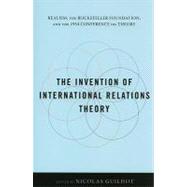The Invention of International Relations Theory
, by Guilhot, Nicolas- ISBN: 9780231152679 | 0231152671
- Cover: Paperback
- Copyright: 1/15/2011
The 1954 Conference on Theory, sponsored by the Rockefeller Foundation, featured a "who's who" of scholars and practitioners debating what would become the foundations of international relations theory. Assembling his own team of experts, all of whom have struggled with the legacy of this conference, Nicolas Guilhot revisits a seminal event in the discipline and its odd rejection of scientific rationalism.Far from being a spontaneous development, these essays argue, the emergence of a "realist" approach to international politics, later codified at the conference, was deliberately triggered by the Rockefeller Foundation. The organization was an early advocate of scholars who opposed the idea of a "science" of politics, pursuing, for the sake of disciplinary autonomy, a vision of politics as a pre-rational and existential dimension of the human condition that could not be "solved" by scientific means. As a result, the nascent theory was more a rejection of behavioral social science than one of its specialized branches. The archived conversations reproduced here for the first time, as well as some unpublished papers by Hans Morgenthau, Reinhold Niebuhr, Paul Nitze, and others, speak to this defensive stance. International relations theory is therefore critically linked to the context of postwar liberalism, and contributors explore how these origins have played out in political thought and American foreign policy.







